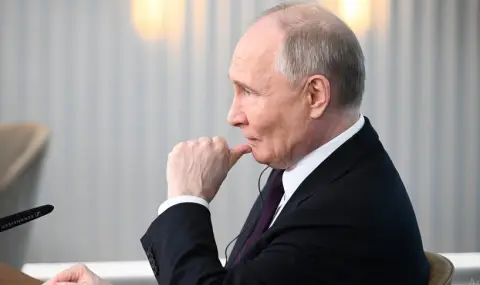Russia's full-scale invasion of Ukraine in February 2022 not only sparked international outrage but also a wave of sanctions aimed at weakening the Kremlin's ability to wage war against its neighbor.
Russia's assets abroad were frozen, its economy cut off from the global financial system, its energy exports redirected.
"Faced with the prospect of economic collapse, the Kremlin will be forced to back down and withdraw its troops. Will they do it?", the BBC asks in its commentary.
Twenty-seven months later, the war was raging. Far from being crippled, Russia's economy is growing. The International Monetary Fund predicts that Russia will see economic growth of 3.2% this year. Caveats aside, this is still more than in any of the world's advanced economies.
„The grueling“ sanctions have not led to shortages in stores. The shelves of Russian supermarkets are full. True, rising prices are a problem. And not everything that was sold can still be found in stores in Russia - a number of Western companies have left the Russian market in protest against the invasion of Ukraine. But many of their products still end up in Russia through different routes. If you look hard enough, you can still find an American car in Russian stores.
CEOs from Europe and America may no longer be flocking to Russia's annual showpiece economic event - but organizers of this year's St Petersburg International Economic Forum (once called Russia's Davos) say delegates from more than 130 countries are taking part and territories.
Instead of shrinking under the weight of Western sanctions, the Russian economy is developing new markets in the East and the Global South.
All this allows Russian officials to boast that attempts to isolate Russia, politically and economically, are not successful.
„The Russian economy seems to have been able to adjust to very unfavorable external conditions,” says Yevgeny Nadorshin, senior economist at PF Capital.
Does this mean the sanctions have failed?
„The big problem was our understanding of what sanctions can and cannot do,” says Elina Rybakova, senior fellow at the Peterson Institute for International Economics.
„It's not like you flick a switch and Russia disappears. What sanctions can do is temporarily throw a country off balance until it finds a way around the sanctions, until it finds alternative ways to get shipments or sell its oil. We are exactly in this space where Russia has found a workaround," the Air Force commented.
Moscow redirected its oil exports from Europe to China and India. In December 2022, G7 and EU leaders introduced a price cap plan aimed at limiting the revenue Russia earns from oil exports, trying to keep it below USD 60 per barrel. But Western experts admit that Russia managed to circumvent this quite easily.
The price ceiling story highlights a dilemma for the US and its partners.
Recognizing that Russia is one of the biggest players in the world energy market, they tried to keep the flow of Russian oil to avoid a sharp increase in energy prices. The result is that Moscow is still making money.
„In a way, we refused to properly sanction Russian oil,” concludes Elina Rybakova. “The priorities are to allow Russian oil on the market and to reduce Russia's revenues. And when these two priorities conflict, unfortunately, the former wins. This allows Russia to collect a lot of revenue and continue the war.
Russia has become China's largest supplier of oil. But Beijing's importance to Moscow extends far beyond energy exports. China has become a lifeline for the Russian economy. Trade between the two countries reached a record 240 billion USD in 2023.
